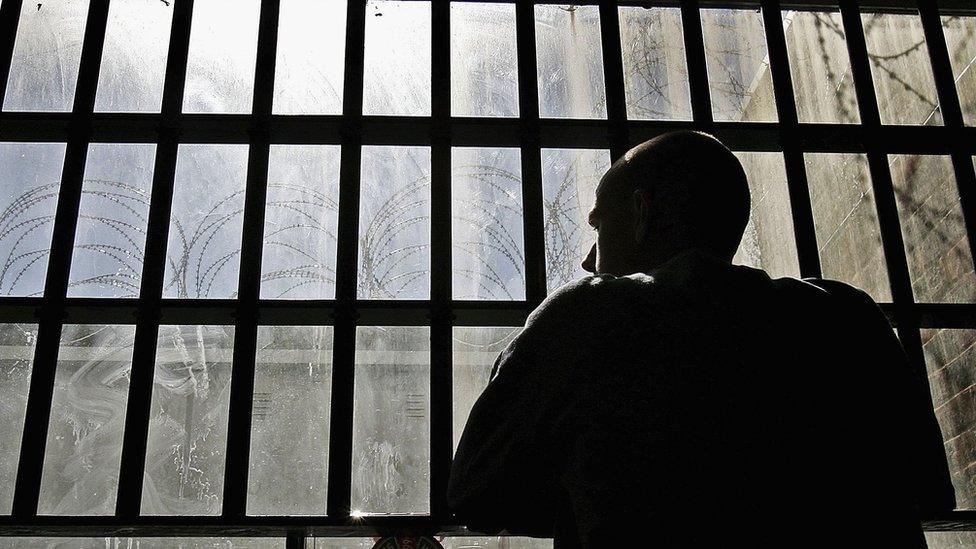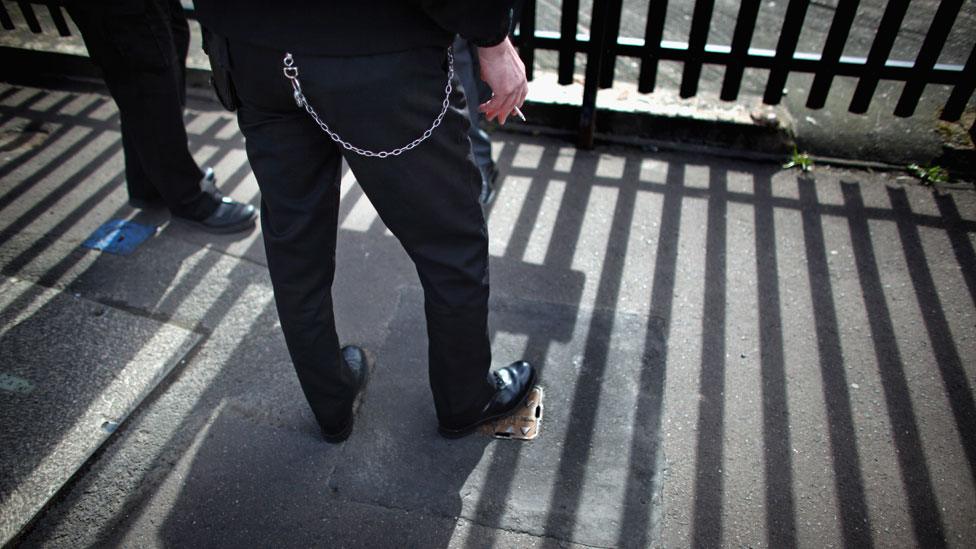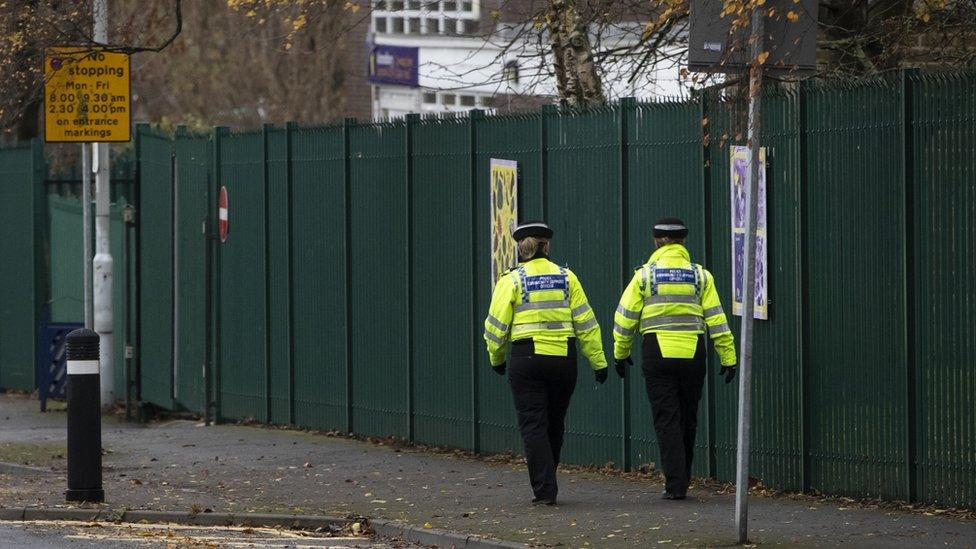Young offenders 'set up to fail' on their release from custody
- Published

Feltham was among the five YOIs featured in the report
Young offender institutions in England and Wales fail to provide necessary support for children to succeed in life after custody, a report has found.
In many cases, secure accommodation is not lined up, while mental health support, education and employment are often not arranged, the prison and probation inspectorates said.
Penal reformers said children were being "set up to fail".
The government said it was reviewing resettlement services at YOIs.
YOIs house inmates from the ages of 15 to 21 and the joint report, external by the Inspectorate of Prisons and Inspectorate of Probation focuses on the situation facing those who come out under the age of 18, when they are legally still children.
The report also found "inadequate" planning to protect others from the risk posed by those released.
Many of the hundreds of children released each year from YOIs are categorised as having "profound" needs for support and follow-up care - but the report pointed to "systemic" weaknesses in meeting these needs.

'Poor practice'
In one example highlighted in the report, Nawaz, a 16-year-old boy with a history of possessing offensive weapons and robbery, was released and allowed to go home to his parents with "no consideration" of the threat he might pose to his family.
There were three young children in the house and within weeks of his return adult men "wearing balaclavas" arrived at the house and threatened the family.
In another case, a 16-year-old called Owen was placed in accommodation more than 60 miles away from his home area without any education plan, mental health support or assistance on how to avoid substance use..
The teenager, who had been jailed for eight months, had experienced early trauma in his life and was in the care of the local authority. Children's services provided him with a placement the day before his release.
The delay "prevented planning for his release", according to the report, and as a result he knew no-one in the area in which he was sent to live.

Frances Crook from the Howard League for Penal Reform said children were being "set up to fail", adding: "We have worked with children to find out what home means to them, and they told us that it meant much more than just a roof over their head."
Peter Clarke, the chief inspector of prisons, and Justin Russell, the chief inspector of probation, said the issue with the most "detrimental" consequences for young people highlighted by the report was "a lack of suitable accommodation" provided in time for other support to be put in place.
The report gathered date on 115 children released in the first three months of this year and found that 14% of them did not know, 10 days before their release, where they would be living.
The inspectors were also concerned that "not enough thought" was given to children's future by YOIs before they released them.
And they added: "They did not consider sufficiently often the risk to others that the child might pose on release.
"There was often a view that that was the remit of external agencies, and that resettlement really started on the day of release.
Mr Russell said the findings were "disappointing", adding: "Children and young people are being let down and are not being supported to succeed on release."
Helga Swidenbank, executive director of the Youth Custody Service, said: "Good resettlement support is vital for children leaving custody and, while inspectors recognised examples of excellent practice, our standards have to become more consistent.
"We are reviewing resettlement services at all Young Offenders Institutions and will be working closely with external agencies providing accommodation, education, training and employment to improve arrangements for support on release."
- Published24 July 2019

- Published25 August 2018

- Published13 November 2018

- Published31 July 2019
